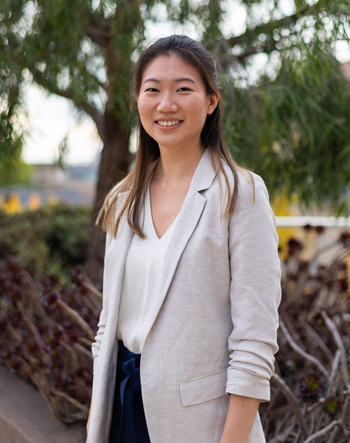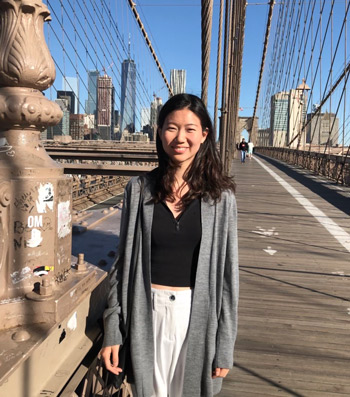Over the course of the summer, we are presenting some first-person accounts from Berkeley Law students immersed in fascinating work across the legal landscape. Much like the students themselves, the job opportunities and practical experiences they receive are diverse and extraordinary.

Yuhan Wu ’24 is a Berkeley Center for Law & Technology Scholar and co-president of Women in Tech Law, a student-led organization that strives to recruit, support, and empower women who are interested in technology law by providing outreach, mentorship, and educational resources. She is also articles editor of the Berkeley Technology Law Journal, senior publishing editor of the Berkeley Business Law Journal, co-director of client services at the Food Justice Project, and a member of First Generation Professionals and the Asian Pacific American Law Student Association.
Below, Wu describes her work as an extern with the U.S. District Court for the Central District of California’s Patent Program:
In June 2011, Congress established a Patent Pilot Program, and 14 U.S. district courts participated in the 10-year initiative. Its general goal was to increase the expertise of a selected number of judges involved in complex patent litigation in order to provide greater predictability and uniformity in patent decisions. The Patent Pilot Program officially concluded in July 2021.
Afterwards, the Central District of California elected to establish its own full Patent Program. As a summer extern for the Program, I work with two patent law clerks to support six district judges. Because of this unique structure, unlike my peers who are associated with a specific chamber, I have the opportunity to interact with several different chambers.
I typically attend hearings on Monday, Thursday, and Friday mornings, depending on the judges’ calendars. While I pay particular attention to patent cases, I also listen in on hearings about cases ranging from environmental disputes to product liability class actions. It has been an amazing learning experience for me to observe attorneys doing oral arguments and see how judges with different styles interact with litigants.

Often, the law clerks send me the briefs and the tentative order, if available, of a specific case prior to the hearing, so I have a general idea of what to expect and what to look for in the actual hearing. Because I have an opportunity to see how a courtroom operates from the backend, I also get to observe how judges with different judicial approaches analyze legal issues.
Besides attending hearings, I had a chance to observe a virtual settlement conference supervised by a district judge. I also attended a technical tutorial session where the parties educate the court about the at-issue technology. Throughout the summer, I have access to trainings provided to externs and law clerks, and I attended several trainings on writing arranged by the Bankruptcy Court.
As for fun social events, I participated in a virtual trivia night organized by the Ninth Judicial Circuit Historical Society, which featured a magic show, and ran into a couple of my peers (from my mod) at Berkeley Law.
Although I have been working remotely for most of my externship, I did an in-person “field trip” day to the First Street U.S. Courthouse in Downtown Los Angeles, where I attended a bench trial and met a couple of judges in-person. The Courthouse is absolutely gorgeous, featuring modern glass design and natural light in the courtrooms and offices. If you are ever in the area, I definitely recommend checking it out.
Another major component of my externship is drafting court orders on various motions, such as claim construction, motion to dismiss, and motion to disqualify expert witness. I review both sides’ briefs and conduct relevant legal research.
After I have drafted an order, the law clerks provide me with detailed line edits. I then have some back and forth with the law clerks on the draft before sending it for the relevant judge to review. I have received tons of useful and practical writing tips from the law clerks, and I feel like my writing skill has been improving.
I came to Berkeley Law knowing I wanted to aim for a legal career working with technology and intellectual property issues, and my externship confirmed this interest. It also allowed me to gain substantial understanding of the patent system and what litigation work is like, which helps me narrow down the practice areas I want to pursue.